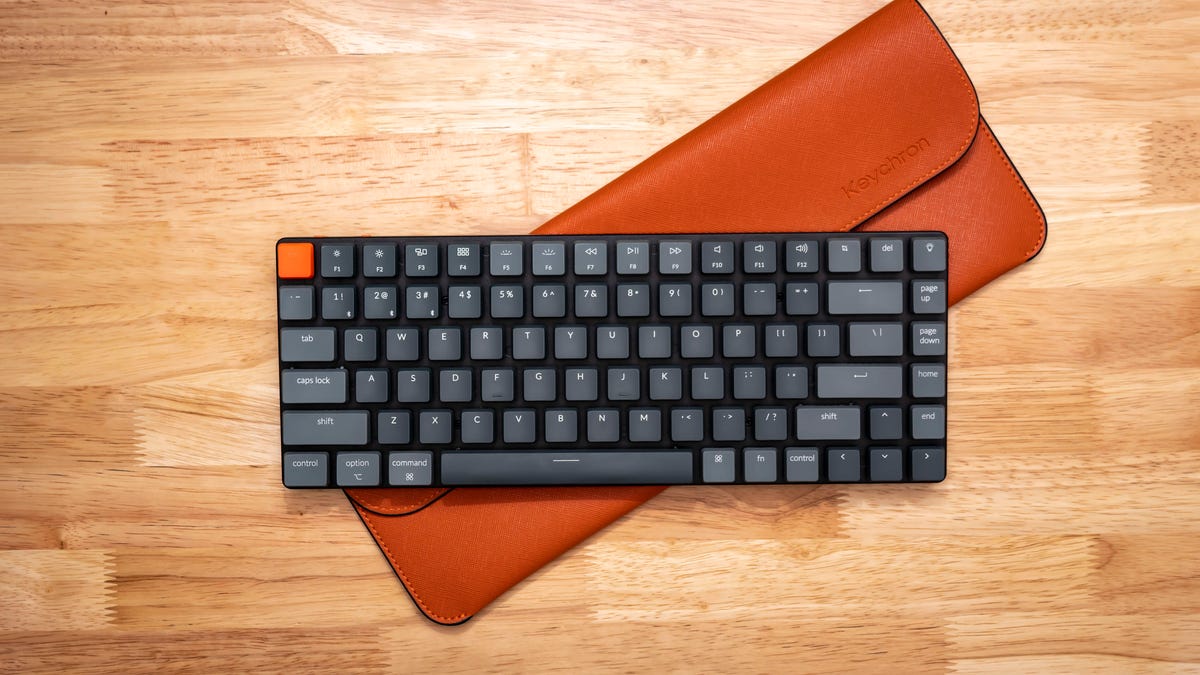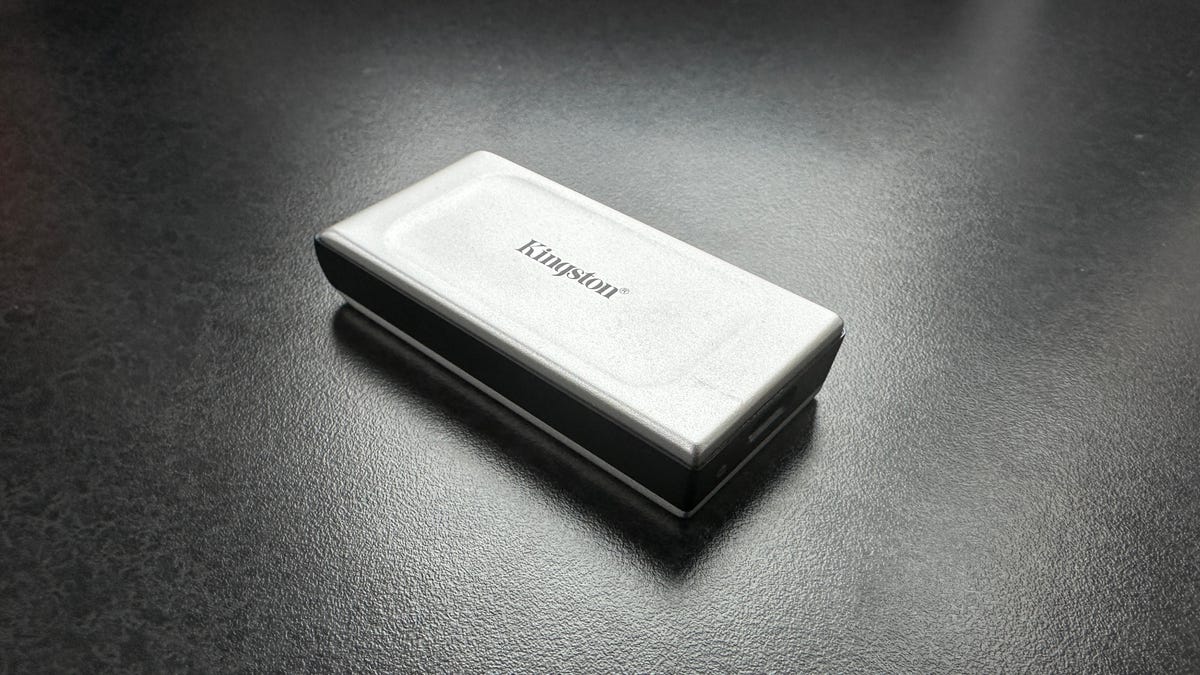Best Keyboard for 2024

A good keyboard is an essential part of most desk setups. It can make all the difference when it comes to comfort and overall productivity, but it can be confusing when there are so many options on the market. You’ve come to the right place: You’re sure to find the right keyboard to suit your needs and budget here. Big brands like Logitech, Apple and Microsoft offer plenty of great choices, but don’t overlook the quality options from smaller brands. You’ll find some worthwhile picks from them on this list too.
Whether you’re looking for an ergonomic keyboard for those long days in your home office or want to shop compact keyboards for a model that works well in a tiny dorm room, there’s a big enough selection out there to accommodate your needs — even budget keyboards. We’ve compiled a list of the best keyboard options so that you don’t have to search yourself.
Our picks focus on both wired and wireless keyboards designed for work and everyday use, not gaming. (If you need a gaming keyboard that is optimized for players, these are the best gaming keyboards we’ve tested.) It also covers models at a variety of prices because you don’t necessarily need to spend a lot to get a better keyboard.
Also, unlike phones, TVs, laptops and many other tech products, keyboards aren’t updated frequently. There’s a good chance the best keyboard for you may be a model that’s been around for a while. The market is huge, though, with a variety of keyboard features available like weighted keys or a wrist rest, and we’ll continue to test new models and update this list so that you can find the best keyboard overall for your needs.
Logitech’s MX Keys is one of our favorite everyday Bluetooth keyboards and now it comes in two smaller versions that leave off the number pad and some other keys: MX Keys Mini and MX Keys Mini for Mac. It comes in rose, pale gray and graphite.
We feel the smaller version is better for most people than the full-size MX Keys. It takes up less space on your desk and it’s ergonomically better because it allows you to keep your mouse closer to your keyboard, which means less reaching and improved shoulder alignment. The Mini also has three new keys, giving you shortcuts to dictation (available in select countries for Windows and MacOS users), emojis and the all-important muting and unmuting of your microphone for video conference calls.
The old-school Mac keyboard and its pleasing scissor-key mechanism is the keyboard to have for most Mac users. It’s a Bluetooth keyboard that connects to MacOS instantly, and a charge of its built-in battery lasts for many months. This standard keyboard is slim, minimal and matches Apple’s hardware perfectly. And it’s available without the numeric keypad, too.
If your office has reopened but you’re not going to be using the same workspace every day, the K3 Bluetooth keyboard is a fantastic option. The slim, compact mechanical keyboard is a 75% size, meaning it doesn’t have a 10-key number pad but still has function and directional keys. The body, which is made from aluminum on top and a plastic on the bottom, is lightweight and sturdy.
The compact keyboard is available with Keychron’s own low-profile optical mechanical switches — brown tactile, blue clicky or red linear — with a white LED backlight or Gateron low-profile mechanical switches with an RGB backlight. I tested all of the Keychron switches and preferred the blue switches for their crisp sound and feel but all three options worked well. Also, if you go with the Keychron switch version, the switches are hot-swappable, which lets you customize your typing experience simply by pulling out and replacing the switches without any soldering. (A hot-swappable version with an RGB backlight will be available soon.)
Out of the box, it is set up for Mac use, but Windows-related keycaps are in the box, too. A switch on the back left lets you pick between MacOS/iOS or Windows/Android. Another switch lets you toggle between using Bluetooth (it can connect to up to three devices) or a USB-C-to-USB-A cable. Battery life is good, but keeping the backlight on all the time, especially at its higher settings, will drain it fast.
A good alternative to the Apple Magic Keyboard with the number pad, this two-zone version of Satechi’s slim wireless keyboard saves some desk by jettisoning some of the directional keys. You still get arrow keys, though, and a full number pad. The feel is similar to the Magic Keyboard, too, with a bit more travel and it has a Mac keyboard layout so you get all the shortcut keys in the Function key row. (It’ll work with Windows PCs too and can be connected to up to three other Bluetooth devices.) It’s backlit around the keys, which is something you don’t get from Apple at this price. It will run down your battery so you probably don’t want to use it all the time. It charges via a USB-C connector on the back and can be used wired if you want to keep working while it juices up.
Though it doesn’t match the comfort of the Zergotech Freedom, the K860 is a compact, one-piece split, curved, ergonomic keyboard. It’s not unlike others such as the Microsoft Sculpt, but it’s not bulky, clunky or unsightly — or in need of add-ons. It also gives Logitech a full desk setup of ergonomic devices when paired with its MX Vertical mouse or MX Ergo trackball mouse.
Despite the low-profile design, there’s plenty of key travel and a pleasing, responsive bounce. This compact keyboard is not backlit, but the gray keys and white markings have enough contrast that they’re visible in low-light conditions, just not in complete darkness. Powered by two AA-size batteries, the K860 can connect to your computer via Bluetooth or Logitech’s USB-A Unifying receiver, which makes it a good option if you need one keyboard that can quickly switch between computers, phones or tablets.
As far as easy use with multiple devices goes, the K780 continues to be one of the best. Larger than the company’s Bluetooth K380 Multi-Device Keyboard, the K780 can connect over Bluetooth or with a wireless USB receiver. The K780 also adds a number pad and — more importantly — a slot at the back of the keyboard to hold your tablet or phone while you type.
The keyboard also supports Logitech’s Flow software feature. When this wireless keyboard is paired with one of the company’s Flow-enabled mice, you can move your cursor between paired devices on the same network and the keyboard will follow. It’s like having a virtual KVM switch.
For travel, the K380 would be the way to go, but the K780 is the better choice if you’re sliding between a phone, tablet and a computer at home or the office.
The BK10 is a Bluetooth keyboard that can be connected to up to three devices and lets you quickly switch between connections with keys above its numeric keypad. What’s better is the keyboard is set up to work with Windows, MacOS, iOS/iPadOS and Android devices.
It has a slim, lightweight body with matte-finished stainless steel on the top and sides and ABS plastic on the bottom. It’s available in other finishes, too. The keyboard’s scissor keys give it a responsive key feel, and it will last for up to three months on a single charge.
While it’s a full keyboard with a number pad, it’s set up more like a laptop keyboard with half-height up and down arrow keys squeezed between two full-size left and right arrow keys tucked below the right Shift key. It’s essentially the same size and layout as Apple’s smaller Magic Keyboard, but with a number pad. One potentially frustrating difference, though: The left-hand Control and Function keys are flipped in position. Otherwise, this is a great pick if you’re in need of a budget-friendly option for your MacOS and iOS devices, your Windows and Android devices or a mix of them all.
Large, wired and designed primarily for Windows users, this is the overstuffed recliner of ergonomic keyboards. It’s more affordable than most ergo models, although it’s a full-size keyboard and requires a good bit of desk space. You’re probably better off keeping this on an under-mount keyboard tray and your mouse on your desktop.
Like most ergonomic keyboards, this one takes a little time to adjust to — partly because of the split keyboard design but also due to its high actuation force. It is comfortable, though, and an attachable lift at the front puts your hands at a negative angle for better positioning.
There are three programmable hotkeys at the top left, followed to the right by a row of media controls and quick-launch buttons for the calculator, screen snips, TaskView to see your open windows, system lock and search. It even has a shortcut button for symbols and emoji.
Source: CNET














